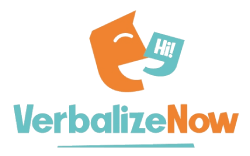Do you feel that? It’s the final entry in our blog series about VARK learning styles. The kinesthetic (or tactile) learner is a hands-on type who learns by doing. This is not to say that they can’t enjoy reading, writing, or listening! All it means is that their ideal class environment is one where inquiry-based learning and hands-on activities happen regularly.
Taking a physical role in learning is the most important thing for a kinesthetic learner. If you were a student who got bored when you weren’t getting to actually do something, this blog is for you.
What do Kinesthetic Learners Love?
Kinesthetic learners make up roughly 5% of the population, and typically exhibit the following traits:
- Feeling the need to move, a lot
- Talking with their hands
- Making decisions about objects by touching and holding them
- Solving problems by working through them step-by-step
- Connecting academic explanations to real-life processes or solutions
Job titles that fit the hands-on nature of kinesthetic learners include: athletes, actors, mechanics, engineers, welders, plumbers, and skilled technicians of all kinds.
Strategies for Kinesthetic Learners
A traditional classroom can be a challenging environment for these learners due to the simple fact that the traditional classroom is centered around the idea of students sitting silently at a desk. Since traditional curricula tends to be geared toward visual, aural, and read/write learners, the kinesthetic learner may find themselves unable to engage in class. This fact has inspired a move toward inquiry-based learning in the last few years, which is great news for kinesthetic learners! Acting out concepts, playing board games, and science experiments are tailor-made for kinesthetic learners. Even math class can benefit from these types of activities: the use of plastic learning tools called manipulatives allow for hands-on exploration of math concepts.
Of course, it’s not always easy or even possible to incorporate hands-on activities. Teachers of some subjects find it difficult to plan for kinesthetic learners. However, gym, drama, art, and music are four school subjects kinesthetic learners may find themselves excelling in due to the physical nature of these disciplines.
How Kinesthetic Learners Can Master Business English
Believe it or not, the study of business English can lend itself to physical activities. Don’t forget that speaking itself is a physical activity! So as long as online business English classes aren’t simply text-based, a kinesthetic learner can blossom. Activities that suit these learners include debating, acting, and playing games like charades (which sound simple but actually can help develop important business English vocabulary.) Kinesthetic learners are unique, and there’s absolutely no reason why they cannot succeed in a classroom. They just need the right teacher!
It’s your future: approach it head on, and hands on! Verbalize Now isn’t just here to improve your business English skills: we’re here to boost your confidence and help you get hired. There has never been a better time to start working on yourself, rather than working for someone else. Contact us to learn how we can help you improve your English and change your life with our online business English classes.










